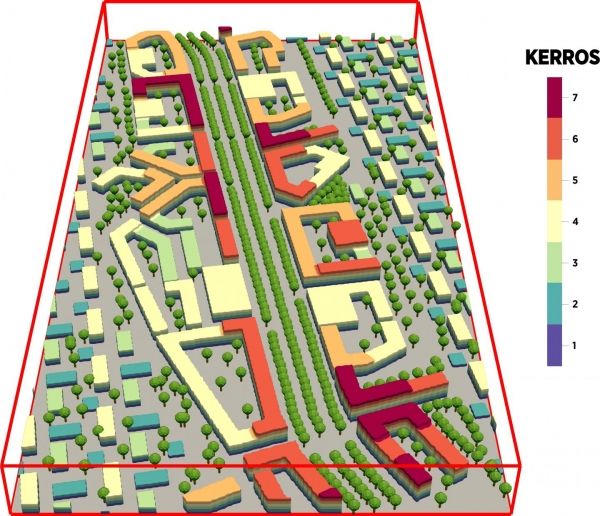What kind of an effect do trees have on aerosol particle concentrations in cities? Modelling carried out at the University of Helsinki revealed that the air was cleanest on the street level with three rows of trees of variable height situated along boulevard-type city street canyons.
A study carried out at the Institute for Atmospheric and Earth System Research (INAR) of the University of Helsinki modelled how different street-tree alternatives and the location of the trees affect air quality on the pedestrian level. The study was carried out in collaboration by the University of Helsinki, the City of Helsinki and the Finnish Meteorological Institute.
In the end, the best option was found to be a row of taller common lime trees (Tilia x vulgaris) in the middle of the street canyon and lower Swedish whitebeams (Sorbus intermedia) lining the sides.
"In that case, the air was one-fifth cleaner compared to the least favourable option, that is the one with four rows of trees of equal height," says Associate Professor Leena Järvi, head of the research group.
Read more at University of Helsinki
Image: A fictional city boulevard being planned for the city of Helsinki was utilised in the modelling. (Credit: Sasu Karttunen)


